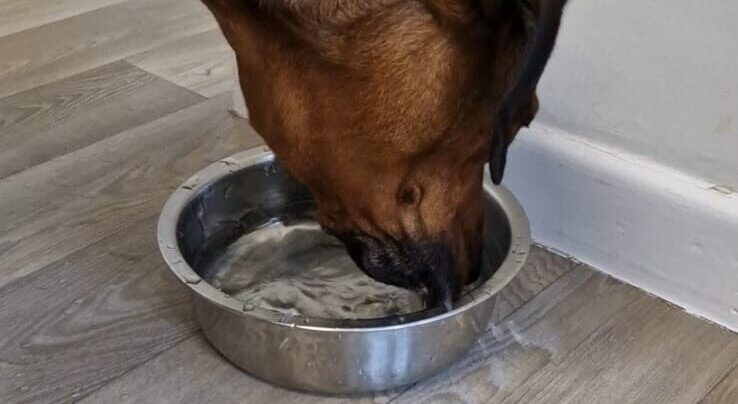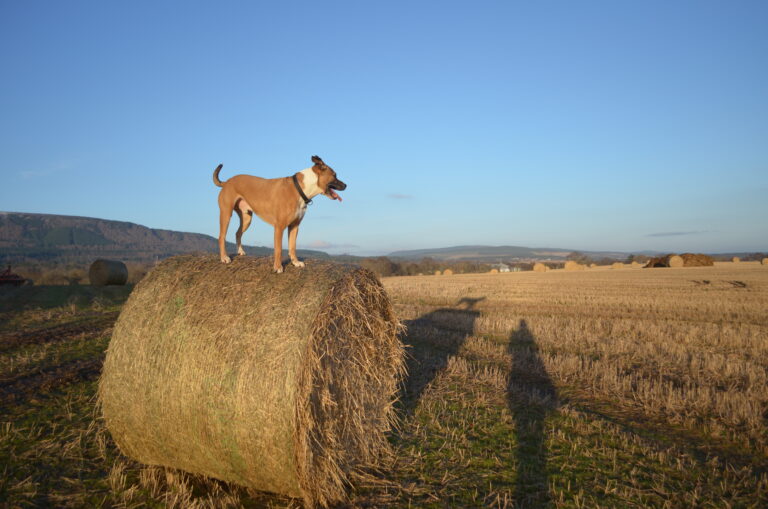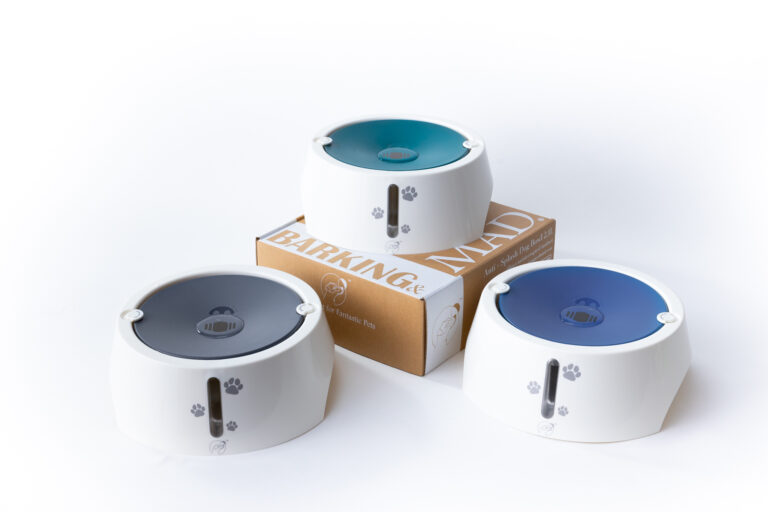Introduction
Having a new puppy in the house is an adventure filled with fun and a bit of chaos.
I remember when my Mum brought Snippet home – he was a ball of energy and curiosity, ready to explore every nook and cranny of our house.
We know training is important. In this guide we’ll share our top tips to help you train your puppy successfully so you can have a happy and well behaved pet.
Click the Table of Contents to visit one specific topic!
Preparing for Your New Puppy
Before Bringing Your Puppy Home
Plan to pick up your puppy on a weekend to give them time to settle in and get to know each other.
Bring a blanket from the breeder to help your puppy feel more comfortable in their new environment.
Ask the breeder for water from their tap to prevent any stomach upset.
Puppy-Proofing Your Home
Remove hazardous items and secure loose objects to prevent accidents.
Set up a “puppy-safe room” for them to wander around in.
Invest in good quality puppy equipment, such as crates and puppy pens.
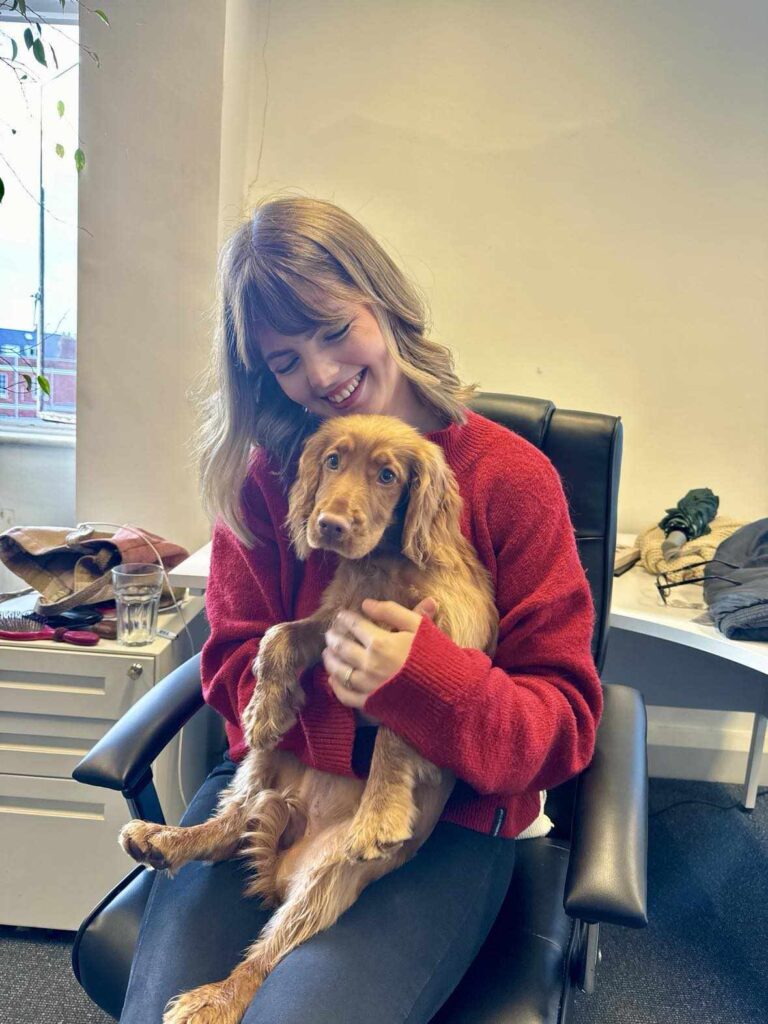
Puppy Training Essentials
Crate Training for New Puppy Owners
Crate training can help with toilet training, traveling, and reducing separation anxiety.
Introduce your puppy to the crate gradually and make it a comfortable and safe space.
Use crates to help your puppy learn to hold their bladder and bowels.
Housebreaking 101
Establish a routine for toilet training by taking your puppy to the bathroom at the same times each day.
Watch out for toilet signs and reward your puppy with treats every time they go to the bathroom in the right place.
Avoid punishing your puppy for accidents, as this can create negative associations and make toilet training more difficult.
Puppy Socialisation
Socialisation is critical for puppies between 8-16 weeks old.
Expose your puppy to a variety of people, animals, and experiences to help them become confident and well-adjusted.
Teach your puppy basic obedience commands, such as “sit,” “stay,” and “come,” to help them become a well-behaved adult dog.
Establishing a Routine
Creating a Daily Schedule
Create a routine for feeding, playtime, training, potty time, and cuddles.
Establish a bedtime routine to help your puppy feel secure and happy.
Be consistent and patient with your puppy as they adjust to their new routine.
Bedtime Routine for Puppies
Establish a calming pre-bedtime routine, such as a relaxing walk or playtime.
Make sure your puppy has a comfortable and quiet place to sleep.
Avoid stimulating activities or exercise before bedtime.

Nutrition and Health
The Right Food for Your Puppy
Feed your puppy high-quality food that is suitable for their age and breed.
Avoid overfeeding your puppy, as this can lead to health problems.
Consult with your vet to determine the best diet for your puppy.
Puppy Health and Hygiene
Keep your puppy’s vaccinations up to date and consult with your vet regularly.
Practice good hygiene, such as washing your hands before handling your puppy.
Keep your puppy’s living area clean and free of hazards.
Additional Tips for a Smooth Start
Managing Children and Puppies
Supervise interactions between children and puppies to ensure everyone’s safety.
Teach children how to interact with puppies gently and respectfully.
Establish rules and boundaries for children and puppies.
Puppy Training Tips for New Owners
Keep training sessions short and fun to avoid overwhelming your puppy.
Use positive reinforcement training methods, such as treats and praise.
Be patient and consistent with your puppy as they learn and grow.
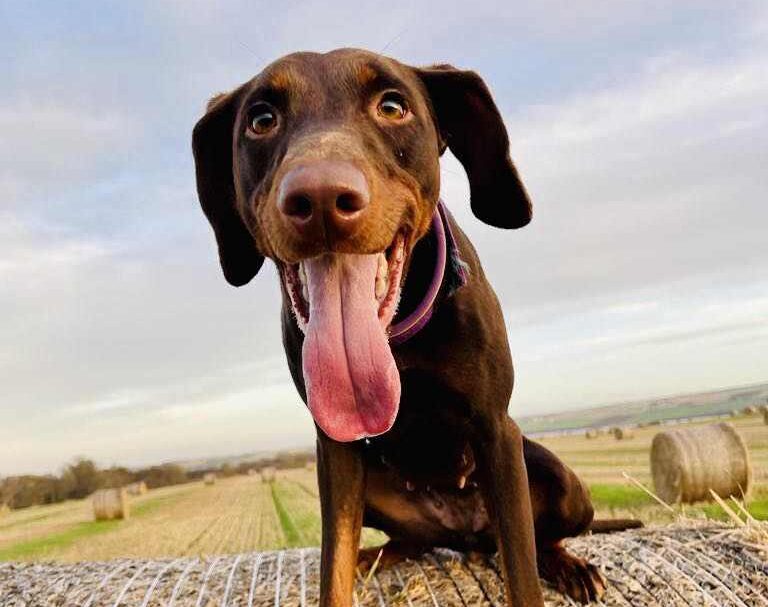
Start with the Basics
Sit, Stay, Come
These are the foundation of good behaviour. Start with “sit” – it’s one of the simplest commands for a puppy to learn and is super useful in lots of situations.
Top Tip for Learning to Sit Faster:
Hold a treat close to your puppy’s nose, then move your hand up and they will follow the treat with their head and their bottom will lower.
As soon as they sit give them the treat and lots of praise. This worked a treat for Snippet – he was sitting like a pro in no time!
Teaching your puppy to “stay” is for your own peace of mind.
Here’s how to do it. Start in a quiet, distraction free area. Have your puppy sit, then hold your hand up like a stop sign and say “stay” firmly.
Initially ask your puppy to stay for just a few seconds.
Gradually increase the time as they get more comfortable with the command. If your puppy stays, give them a treat and lots of praise.
Once your puppy is comfortable staying in place, start adding distance by taking a step back, then rushing back to reward them. Consistent practice in different areas will reinforce the behaviour so your puppy will master the “stay” command.
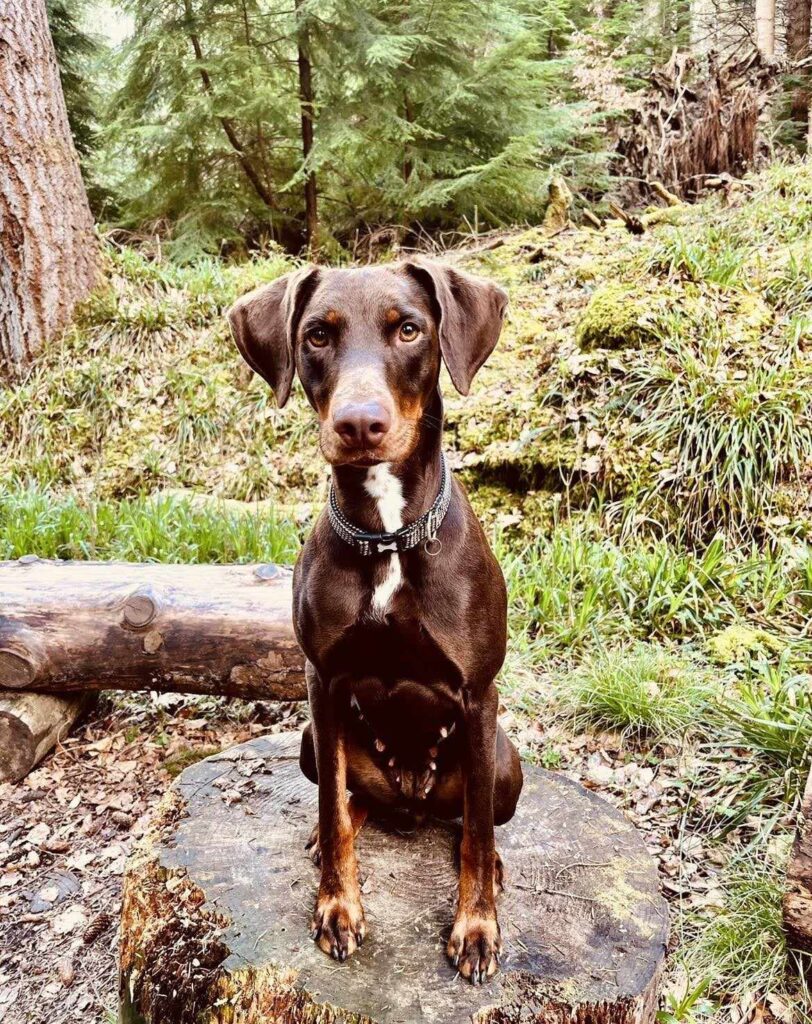
Teaching your puppy to “come” when called is important, sometimes for their safety and your peace of mind. Start in a quiet area. Use a happy, upbeat tone and say your puppy’s name followed by “come”.
When they come to you, reward them immediately with treats and lots of praise. Start with short distances and gradually increase as they get more comfortable.
Practice in different areas to reinforce the command. Consistency and positive reinforcement are key.
Positive Reinforcement
Puppies, like us, respond to positive reinforcement. Use treats, praise and affection to reward them for following commands. This creates a positive association with the behaviour you want to encourage.
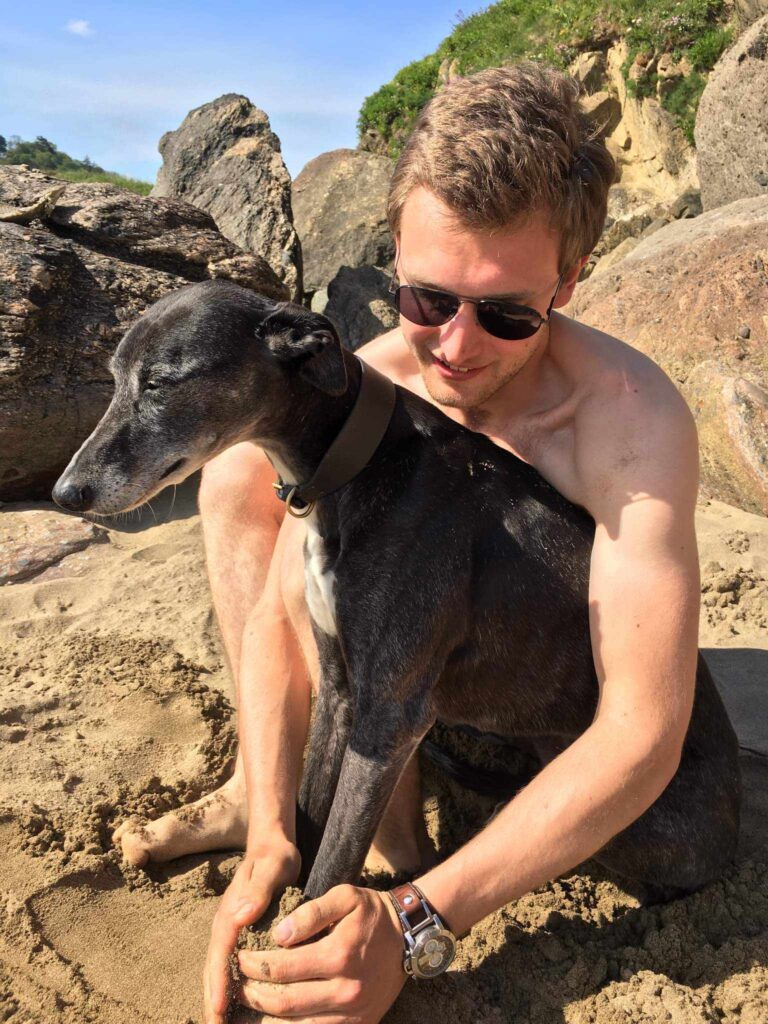
With Snippet we turned “come” into a game, starting with short distances and lots of treats. He quickly learned that coming to me was always a good thing and this became one of his favourite commands.
Snippet spent most of his life on a farm. His “come” command was important especially around other animals that didn’t want him in their field. Not only did it become a positive experience but it was a safe place to be!
Consistency
Consistency is key to learning. Practice commands in short, focused sessions.
Puppies have short attention spans (like me) so it’s better to have several short training sessions throughout the day rather than one long one.
Crate Training: A Safe Space
Crate training is super important for both you and your puppy. A crate provides a safe space for your puppy to rest and can be a useful tool in potty training.
Introduce the crate as a good place. Put a comfy bed and a few toys inside to make it inviting.
Start by getting your puppy to enter the crate with treats and praise. Gradually increase the time they spend in there with the door closed, always rewarding them for calm behaviour.
Never use the crate as a punishment, it should be a safe and happy place for your pup.
Socialisation: Introducing Your Puppy to the World
Socialisation is one of the most important things you can do for your new puppy. Between three and sixteen weeks of age puppies are most receptive to new experiences. Introduce them to different environments, people and other dogs.
This will prevent common behaviour problems and make your puppy a confident adult dog.
Take your puppy for walks, expose them to different sounds and sights and introduce them to people and other puppies.
Puppy classes can also be a great way to socialise your pup in a controlled environment. Positive experiences during this period will help your puppy feel calm in all situations throughout their life.

Puppy Toilet Training: Get it Right from the Start
House training is one of the biggest jobs for new puppy owners. Consistency is key. Take your puppy out first thing in the morning, after meals and before bedtime.
Choose a designated potty spot so they know where to go. Praise and reward your puppy immediately after they’ve done their business outside to reinforce the behaviour.
If accidents happen inside, clean them up thoroughly without being angry at your puppy – patience is key. Using a puppy pad for training can also be helpful as puppies don’t like to soil their sleeping area.
For Snippet and Popcorn, sticking to a routine and rewarding them straight away for going outside made a big difference. Within a few weeks they were fully house trained and knew where to go.
Positive reinforcement is much more powerful than negative anger. If a mess is made inside, just clean it up without anger, as dogs don’t feel guilt in the way we think they do – they are just confused.
Handling Common Behaviour Problems
Every puppy is different and some will develop certain behaviour problems. Chewing, biting and barking are common issues that can be managed with patience and training.
Chewing
Puppies love to chew, especially when they are teething. Provide plenty of chew toys to satisfy this need. If your puppy starts chewing on something they shouldn’t, redirect them to a toy and praise them when they chew on it.
Biting
Bite inhibition is key. Puppies play with their mouths but they need to learn that biting humans is not okay. If your puppy bites, make a loud yelp and stop playing immediately.
This is how other puppies teach bite inhibition. Consistent responses will help your puppy understand that biting ends playtime.
Barking
Barking can be a way for puppies to communicate but excessive barking is a problem. Find out what’s causing the barking – is it boredom, anxiety or attention seeking?
Provide plenty of mental and physical stimulation and use positive reinforcement to reward quiet behaviour.

Puppy Classes: Structured Learning for Your Pup
Puppy classes provide a structured environment for training and socialisation. They give your puppy the opportunity to learn basic obedience commands and interact with other puppies.
Look for classes that use positive reinforcement and experienced trainers.
Crate Training: A Safe Space
Crate training is a must have for new puppy owners. It provides a safe space for your puppy to rest and with house training.
Introduce the crate gradually, use treats and praise to make it a positive experience. Your puppy should see the crate as a place of comfort and security.
Puppy Pen and Baby Gates
A puppy pen and baby gates can help manage your puppy’s access to certain areas of your home. They provide a safe space for your puppy to play and rest while preventing them from getting into trouble. Increase the area your puppy can access as they become more trustworthy.
Feeding and Nutrition: Getting it Right from the Start
Nutrition is key to your puppy’s growth and development. Consult your vet to choose a high quality puppy food that meets your puppy’s nutritional needs.
Set up a feeding schedule and don’t give your puppy too many treats as this can lead to bad habits and weight gain.
Health and Wellness: Keeping Your Pup Healthy
Regular vet visits are important to check up on your puppy’s health and get vaccinations. Talk to your vet about flea treatment and deworming schedules to keep your puppy protected.
A healthy routine will mean your puppy grows into a strong adult dog.
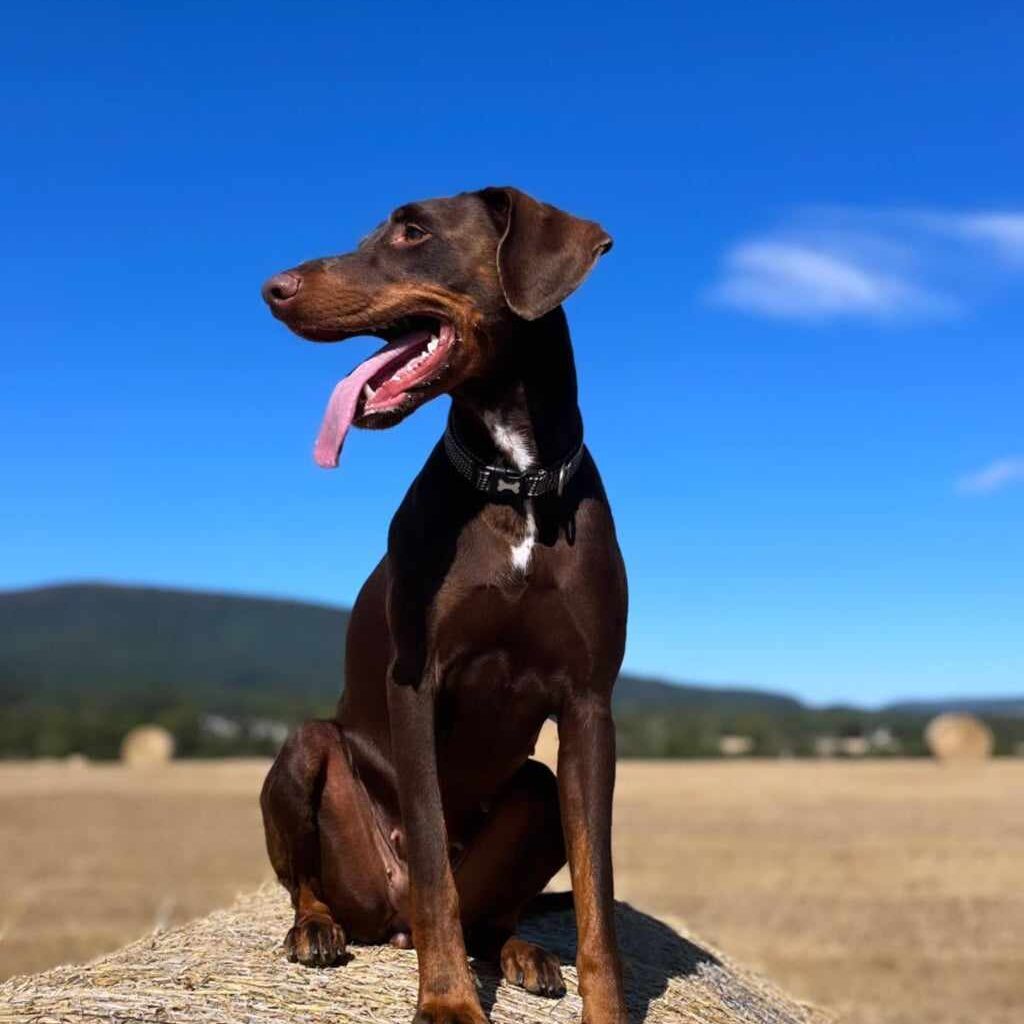
Stress Free Zone
Moving to a new home can be stressful for a puppy so make sure to create a calm and safe space from day one. Set up a comfy bed in a quiet area where your puppy can retreat and chill.
Introduce new spaces and experiences gradually and let your puppy take their time. Use soft voices and gentle touches to calm them and provide familiar items like toys or blankets to make them feel safe.
And stick to a routine to help your new fur baby feel more settled. Remember patience and positivity is key to a smooth transition.
Leaving Your Puppy Alone
Separation anxiety is a common issue for new puppies. Teach your puppy to be alone by gradually increasing the time they spend in their crate or a safe room.
Start with short periods and gradually increase the time. Provide toys and treats to keep them occupied and make being alone a positive experience.
Travel and Public Transport: Preparing Your Pup
If you plan to travel with your puppy or use public transport start by getting them used to the car or other forms of transport.
Use short trips to build positive associations, reward your puppy with treats and praise. Make sure your puppy is secure in a crate or with a harness.
Routine: Structure and Predictability
Puppies love routine and predictability. Set up a daily schedule for feeding, potty breaks, playtime and training sessions.
A consistent routine will make your puppy feel secure and know what to expect, reducing anxiety and good behaviour.
Tips
Be Patient: Puppies learn at their own pace. Stay patient.
Use Treats: Small healthy treats your puppy loves.
Keep it Short: Puppies have short attention spans. Train in short but frequent sessions.
End on a High: Always end training on a success and praise.
Socialization: Expose your puppy to different environments, people and other dogs to build confidence.
Crate Training: Use a crate to provide a safe space for your puppy and for house training.
Reward
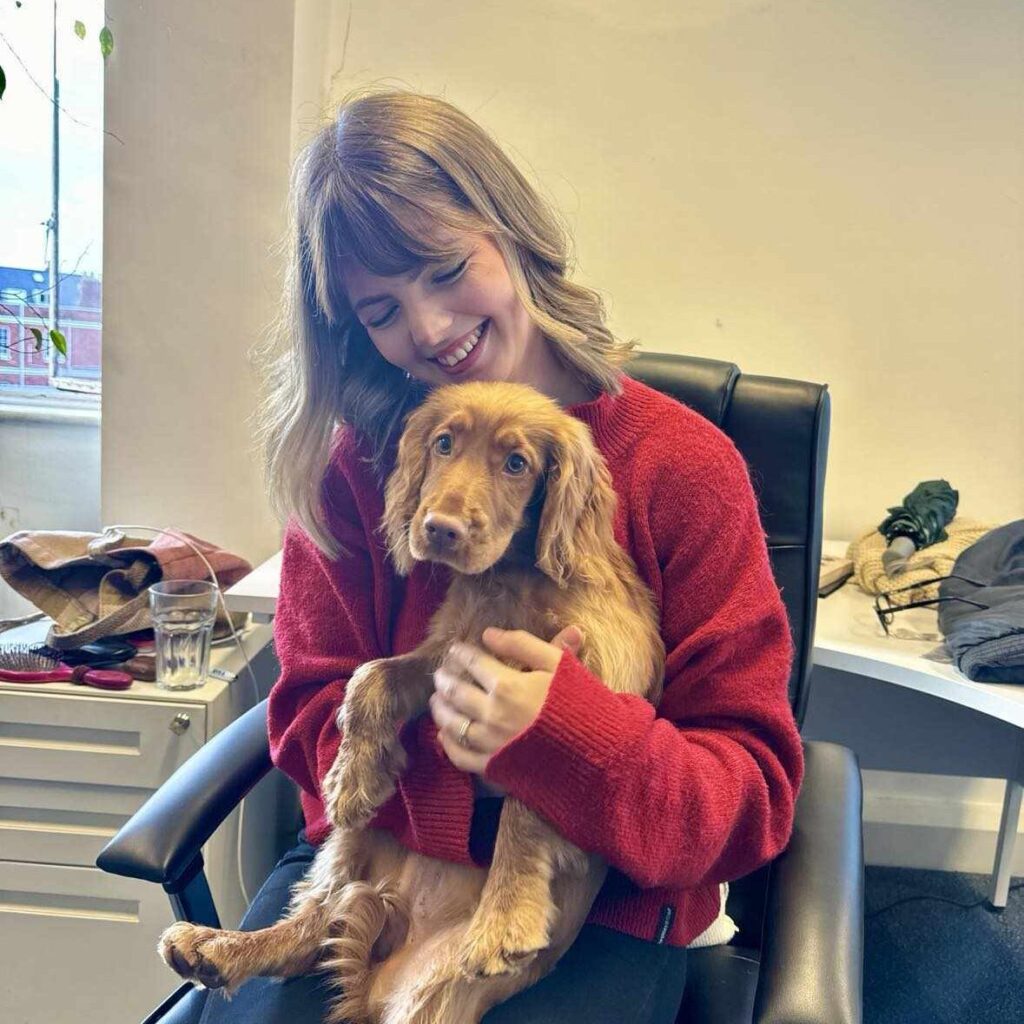
Done!
Training your new puppy can be fun and rewarding. With patience, consistency and love you’ll have a well behaved and happy companion.
Start now and enjoy the journey of bonding and learning together. Share your training successes and challenges with us – we’d love to hear from you!

